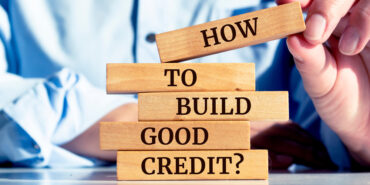Debit Cards vs. Credit Cards: What You Need to Know

Credit cards are often vilified in order to warn consumers about the perils of credit card debt and high interest rates. Personal finance gurus such as Dave Ramsey and Suze Orman urge consumers to dump their credit cards to put their finances back on the right track.
For people who don’t have control over their finances, the experts have a point: Improper use of credit cards and failure to pay off their balance every month can start accumulating high-interest debt. Credit cards can then shift from being a convenient and safe payment option to a high-interest loan causing financial distress.
There have also been countless studies completed on the credit card effect, which have found that when we swipe credit cards we end up spending more than if we used cash. It’s no surprise that we’re tempted to spend more when we swipe, as we don’t “feel” the immediate impact on our bank accounts as we do with cash and debit cards.
However, credit cards aren’t all bad -- in fact, they can have a lot of benefits when cardholders use them responsibly.
“Credit cards often get a bad rep because of credit card debt, but if you avoid accruing interest, there’s a lot of great perks,” says Ted Rossman, Senior Industry Analyst at Bankrate.
It is possible to live within your means, take advantage of the perks that credit cards offer, and control your spending. Here’s what you need to know about the advantages of credit cards, how they differ from debit cards, and how to use them both responsibly.
Credit cards vs. debit cards
Consumers love the convenience of plastic, but for some people, misinformation -- or lack of information and fears of debt -- has kept them away from credit cards.
Debit cards are the most used and preferred method of payment. However, limiting yourself to only using debit cards can keep you from the benefits of credit cards.
Overall, these two pieces of plastic couldn’t be more different. Here’s what you need to know to help decide if one, or both, are right for you.
Credit cards
Costs
With credit cards, you borrow money every month from credit card companies that look at your credit history to determine your spending limit. This is an example of revolving credit, which means you don’t need to reapply each month to use your line of credit. With a credit card, you only pay interest when you carry a balance. As long as you pay in full by the due date you won’t accrue interest charges.
Risk vs. reward
Credit cards also offer users perks such as cash back on purchases, discounts, travel points, and other rewards. For example, a card might offer 6% cashback (or up to $6,000) on purchases at U.S. supermarkets.
Let’s put this into perspective: On average, households spent $5,703 on food at home in 2022, according to the U.S. Bureau of Labor Statistics Consumer Expenditure Survey. If this was your annual food budget, at the end of the year, you’d rack up $342 in cashback from your credit card rewards using the 6% example above.
“Because of those rewards, it’s usually better for households to use credit cards as long as they can control their spending and pay off their balance in full every month,” says Laura Ricaldi, Ph.D., CFP®, an assistant professor at Utah Valley University.
Credit score
Making on-time payments to your card issuer every month can help build your credit score since your payments are reported to credit bureaus. They also build the length of your credit history as you continue to use the credit card.
Debit cards
Costs
On the flip side, debit cards use money you already have. You won’t pay interest on your debit card transactions as the money is taken directly from your checking account. The money in your bank account will determine how much you can spend.
Risk vs. reward
However, debit cards don’t always offer as many consumer protections as credit cards. If your credit card is stolen, lost, or used fraudulently, you typically won’t be liable for the damages. If someone steals your debit card, you may be responsible for some of the damage -- or even all of it -- depending on how quickly you report the fraudulent charges. Another difficulty may be waiting for a credit or reimbursement while your bank investigates the claims, which means you could be out of the missing cash until the bank resolves your dispute.
Credit score
Another critical difference between credit cards and debit cards is their impact on your credit score. Unlike credit cards, debit cards typically don’t have an impact on your credit score or credit report, whereas most credit cards do.
5 ways to become a better credit card user
Debt avoidance is a common reason for consumers' preference for debit cards over credit cards. Some people don’t trust themselves with credit cards.
“It’s not necessarily the credit card that is bad,” Ricaldi says, “but it’s your inability to control your spending that is causing problems.”
Debit cards make it hard to use money you don’t have. If you try to make a purchase or debit transaction for $30 and your account only has $25, your card may be denied or charged an overdraft fee. With a credit card, your credit line can be more than the amount of money you have in your checking account, so it’s easier to spend beyond your means. Unless you hit your credit limit, the merchant won’t reject your card.
“When you use your debit card every month, you use the same willpower to not overdraw your account,” Rossman says. “If you have the power to avoid draining your account with a debit card, you can also do that with a credit card.”
If you’re used to using debit cards because you can avoid debt, with the right financial safeguards -- such as the ones listed below -- you can become a responsible credit card user.
No. 1: Build your money management skills
Whether you have a formal or informal budget, stay on top of your finances with regular check-ins. No matter if you use a budgeting system, pen and paper, or a financial management app, it’s important to know you’re using your credit card sensibly.
“Just tracking your spending mentally and making yourself aware of your spending habits is incredibly important,” Ricaldi says. “When you make a cash flow statement, you realize where your money is going and can reflect back on your spending.”
Opening a new credit card can feel intimidating. If finances aren’t your strong suit, ask a friend, parent, or spouse with excellent money management skills to help hold you accountable.
“If the credit card is making you uncomfortable, step back and take some financial literacy classes to improve your knowledge and help you become more confident in your finances,” Ricaldi says.
No. 2: Start slow
Starting with one credit card and only using it to buy items in one or two recurring expense categories can be a way to try out credit cards.
“Dip your toes in slowly; it doesn’t have to be all or nothing,” Rossman says.
After a couple of months of positive repayment history, your credit limit may increase. You don’t have to keep it high if it makes you uncomfortable. If the credit card limit you’ve been given seems unattainable for you to pay back, you can always ask for a lower credit card limit. At the same time, if you have a higher limit, keeping your account balance low can help with your credit utilization ratio.
No. 3: Find the right credit card
Look for a credit card that will help you build credit and give you some rewards in return.
You probably shouldn’t leap into the $500-annual-fee card with premium rewards. Shop around and look for a card with low or no fees, or find a simple flat-rate cashback card.
No. 4: Treat your credit card like a debit card
When you don’t see the money leaving your bank account, as is the way with credit cards, it can lead to unintentional overspending. With a debit card, your account won’t have sufficient funds to make transactions.
One way to avoid overspending -- in addition to late payments -- is to set up regular automatic payments to pay off your balance. Track your expenses, just like you would with a debit card.
“You can use a credit card just like a debit card and pay it off every month to avoid interest. You can even pay it off every two weeks around payday,” Rossman says.
No. 5: Try a secured credit card
If you’ve had prior missteps with credit, it can be more challenging to qualify for a new credit card, but that doesn’t mean you’re out of having a card forever.
“You shouldn’t avoid credit just because you can’t get it,” Rossman says. “Secured credit cards can improve your credit score with positive payment history.”
Secured credit cards give you a taste of what it’s like to use credit. Secured credit cards require borrowers to put down a security deposit. The deposit is the account’s credit limit, which acts as a safety net in case you miss a payment.
Secured credit cards also offer fraud protection and can build your credit score as regular credit cards do.
The bottom line
Credit cards offer rewards, fraud protection, and flexibility. With the right financial safeguards in place, you can use this payment method without going into debt. Credit cards can be the better payment option if you can commit to controlling your spending habits.
“If you’re not ready to commit to use this payment method responsibly, or you’ve tried credit cards before and found they’re not for you, it’s better to avoid carrying debt and hurting your credit score,” Rossman says.

Laura Ricaldi received her Ph.D in personal financial planning from Texas Tech University in 2015. She is an assistant professor at Utah Valley University. Her background includes working as a mutual fund accountant in New York City and obtaining an MBA with an emphasis on management and leadership.

Ted Rossman is a Senior Industry Analyst at Bankrate. He has spent the past decade in the personal finance industry, conducting consumer and industry research and providing commentary for media and consumers. His focus areas include credit cards, debt management, and credit scores.
Please note the below article contains links to external sites outside of OppU and Opportunity Financial, LLC. These sources, while vetted, are not affiliated with OppU. If you click on any of the links you will be sent to an external site with different terms and conditions that may differ from OppU’s policies. We recommend you do your own research before engaging in any products or services listed below. OppU is not a subject matter expert, nor does it assume responsibility if you decide to engage with any of these products or services.




